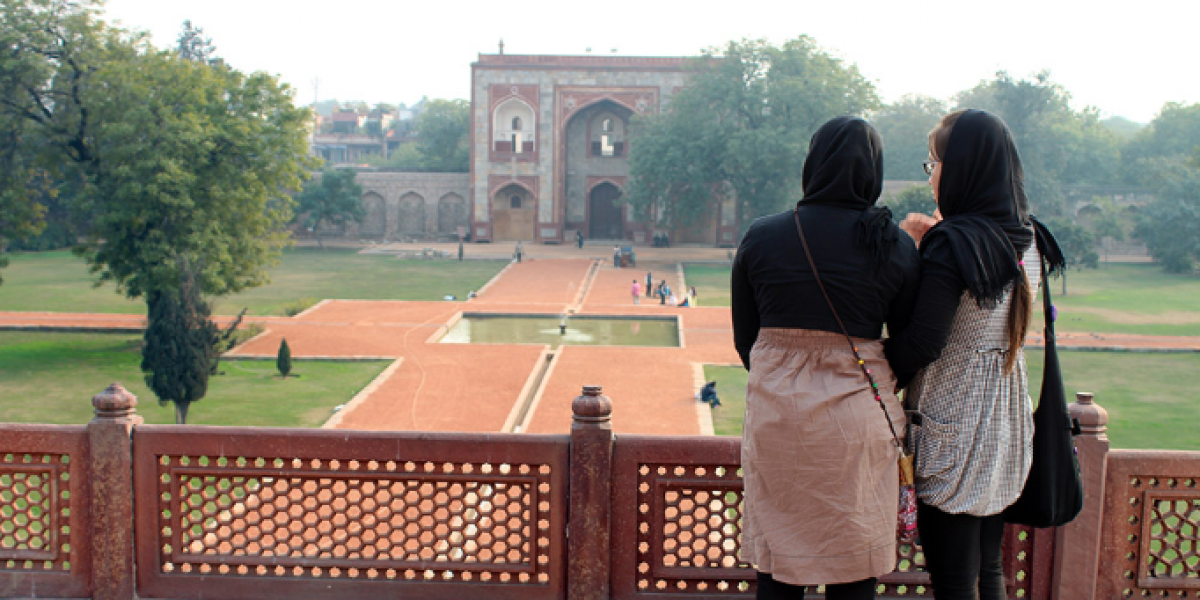India: Afghan Students Practice Their English During New Delhi Visit
12 February 2013|Molly Mullen, Communications Correspondent, JRS International

Tuesday at Humayun’s Tomb might have looked like any class trip with students singing on the bus, teachers telling students to stay together and respect the monuments. But for these 32 teenagers, it was their first time outside of Afghanistan, and a real opportunity to use the English they have been learning over the past four years.
These students attend the JRS English Access Program in Afghanistan. They were selected by the American Council for English Education to spend a month in India to practice English, enhance their leadership skills, and experience other cultures. During the month long trip, or camp as the American council refers to it, the students’ itinerary varies from visits to Punjabi villages to trips to high-class New Delhi markets. This has been the fifth Youth Solidarity and English Language Immersion (YSEL) camp for Tom Toomey, YSEL camp director.
“In Afghanistan women can’t go out freely or study. I like to see how other women live … we go back to our hotel at night and wonder why we can’t do the same”, said Mariam* from Kabul. Mariam is one of three students in the camp who received an education from JRS teams in Herat and Kabul.
“Learning English is the key to education for these kids … This not only addresses problems of illiteracy but makes them global citizens and critical thinkers”, said Mr Toomey.
“My favorite part was seeing the Golden Temple in Amritsar. There were Sikhs and Muslims; rich and poor people together. In Afghanistan, there are many places that are special just for Muslims or Sikhs, and I liked seeing everyone getting together in one place”, said Saifa*, from Herat, a small city in western Afghanistan where JRS offers teacher training and English language programs.
Walking around Delhi’s Lodhi Gardens, JRS teacher Sahaya Jude joked with former students about how little English they understood when he began teaching them in 2007. “Since I came to the JRS center, my English has improved a lot. We started with the ABCs; grammar was the hardest. All of that past-present-perfect stuff got really confusing and I wanted to give up but I kept working”, said Farzana*, 16, from Herat. JRS has trained more than 600 students in the English Access Program in Herat, Kabul, and Bamiyan. These students then go on to teach other young children in their home villages.
During the academic term they teach in the local schools, while over the breaks they provide extracurricular classes. Graduates from this camp have gone on to receive scholarships to study in the US, Canada, and India. While some have decided to stay in their new countries and start careers, Mr Toomey hopes some will go back to Afghanistan to build the country for the next generation.”These kids are the future of Afghanistan. Or should I say, the future of Afghanistan depends on these kids”, he said.



